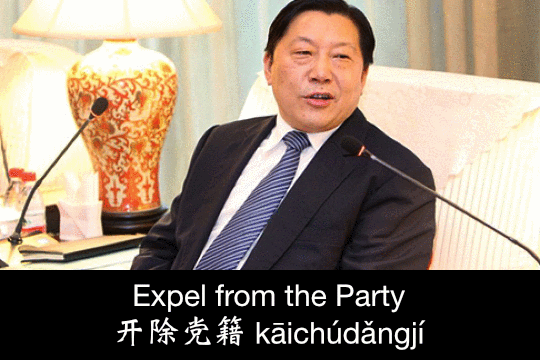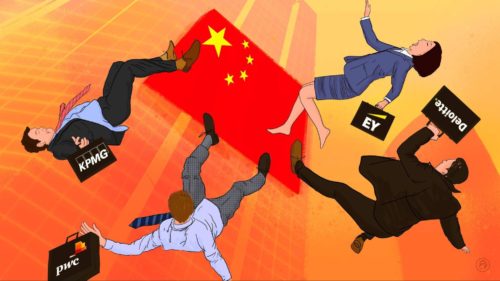The fall of Lu Wei, first commander of the Cyberspace Administration of China


Lu Wei 鲁炜 began his career as a Party enforcer at the Guangxi Zhuang Autonomous Region branch of Xinhua News Agency in Nanning City. He rose through the ranks of the state media apparatus to become the deputy director of the Party’s publicity (née propaganda) department, and most famously, the head of the Cyberspace Administration of China, the most powerful regulator of China’s internet.
Now he has fallen:
- The Party’s anti-corruption watchdog, the Central Commission for Discipline Inspection (CCDI), has charged (in Chinese) Lu with serious violation of discipline, including tyrannical and shameless behavior, wild ambition in the pursuit of personal fame, deceiving the Party, accepting huge bribes, and trading power for sex. Lu’s Party membership has been cancelled.
- It’s a rather extraordinary attack on the character of a recently high-flying official. The respected Beijing-based historian and commentator Zhang Lifan 章立凡 told the South China Morning Post: “The wording…was harsher than before. It is very unusual. Previously, such [CCDI] statements would detail specific offenses… He might have done something to deceive the top leadership, leading to their great fury.”
- Here is a video of a news announcer reading out the charges against him on the evening news program broadcast by CCTV and carried by dozens of provincial TV channels.
- Also today: “Chinese prosecutors have charged disgraced senior politician Sun Zhengcai 孙政才 with bribery,” reports Reuters. A former Party boss of the megacity of Chongqing, Sun was placed under investigation in July last year, and is one of the most senior officials to have fallen in Xi Jinping’s years-long anti-corruption campaign.
- Former vice governor of Shandong Province Ji Xiangqi 季缃绮 has also been kicked out for “severe disciplinary violations,” according to CCDI (in Chinese).
If you’re a The China Project Access member, please click here for my further thoughts on the fall of Lu Wei, or click here to become a member: Our launch offer is only $8.88 a month.
On glowing profiles of tech CEOs
Yesterday I noted a rather glowing profile of on-demand transport company Didi Chuxing and Jean Liu 柳青, whom I called the CEO. A respected journalist who sometimes writes about tech companies in China wrote to me with a correction: Jean Liu is the president. The CEO is Cheng Wei 程维.
Liu is much more media friendly, and also fluent in English, so the distinction conveniently gets blurred in foreign coverage (convenient for both the media-savvy company and the overseas reporter). I think Bloomberg came closer to giving an inside look at the company here, focusing on Cheng’s role in making decisions regarding the fight against Uber.
Personally, I’m just sensitive to how tech companies manipulate, or steer, coverage. Access wins favors, and companies grant access on the basis of expecting positive coverage. Just as Baidu has been having various problems and disappointments, it’s granted rare access to Robin Li, twice — and lookee, a blow job of a cover story from Time magazine (Asia edition), and a very favorable long piece in Wired. There was almost no way those pieces were going to be anything less than complimentary, given the dynamics of securing high-level interviews.
Two things
- On the excellent Twitter feed of Tong Bingxue, who posts old photos and film of China: China’s last Emperor Puyi’s testimony at the Tokyo Trials in 1946, featuring audio of his beautiful Beijing accent.
- “A Lunar New Year goodwill message posted by the United States embassy in Beijing on its social media account on Thursday was hijacked by angry Chinese stock market investors venting their spleens over their recent losses,” reports the South China Morning Post.






